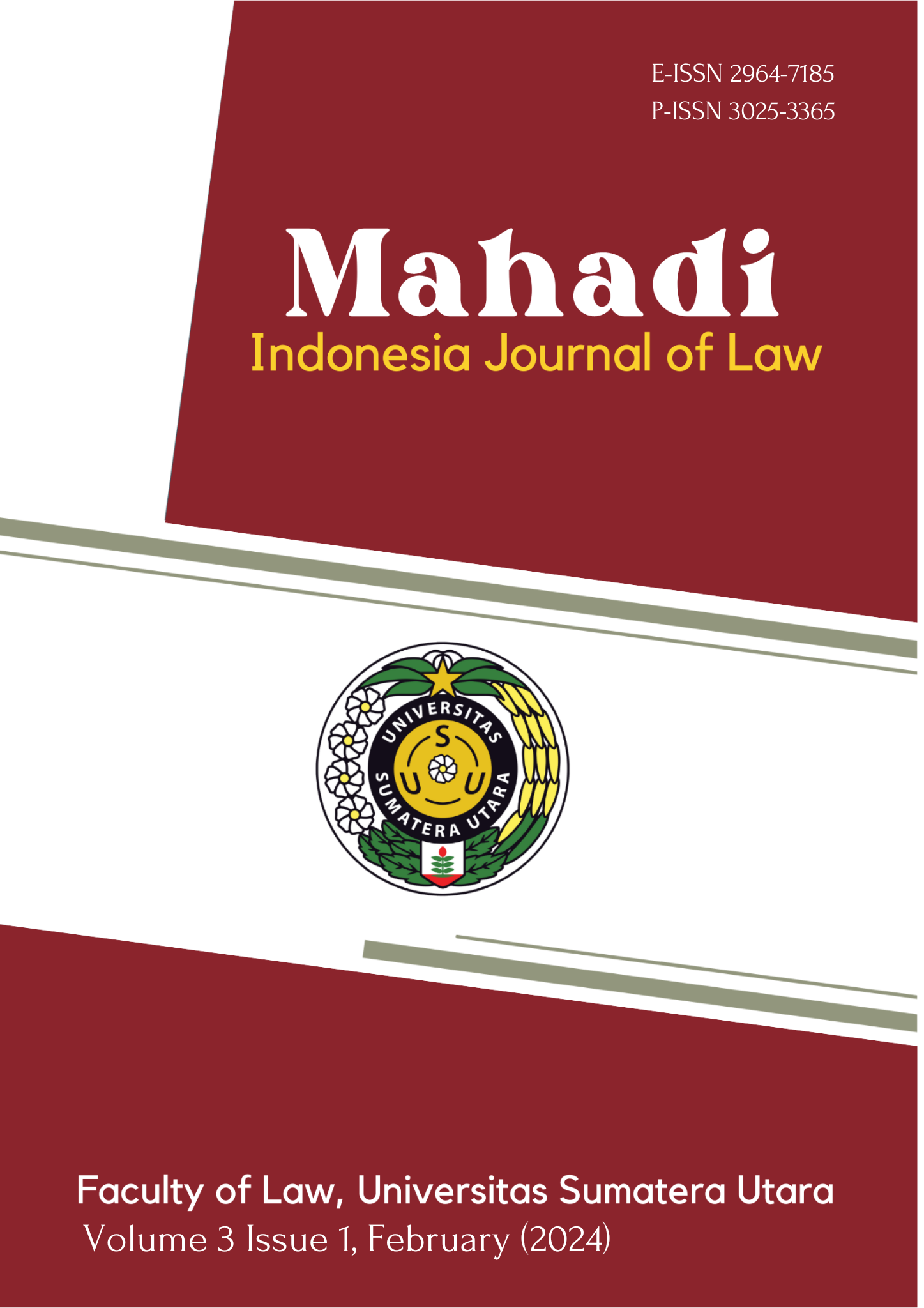Rights of Restitution to Child Victims Under Law No. 35 of 2014 Concerning Child Protection
DOI:
https://doi.org/10.32734/mah.v3i01.15455Abstract
Restitution is the compensation paid by a perpetrator, as determined by a court with a final legal decision, to cover the material and/or immaterial losses suffered by the victim or their heirs. In cases involving child victims, restitution becomes obligatory for the perpetrator to compensate the victim for their losses. This demonstrates the perpetrator's responsibility for actions that have harmed the victim, their family, or heirs, in accordance with Article 71 D Paragraph (2) of Law Number 35 of 2014, which amends Law number 23 of 2002 concerning Child Protection. Restitution, as a form of compensation for victims of crimes, aligns with the Principle of Restoration to its Original Condition (restitutio in integrum), aiming to restore victims to their state before the crime, although complete restoration may not be possible. It emphasizes a holistic recovery approach, addressing various aspects resulting from the crime's consequences. Through restitution, victims can recover their freedom, legal rights, social status, family life, citizenship, residence, employment, and assets. The research will be conducted at the Belawan Police, Medan LPSK, and Bagan Deli Belawan Village.
Downloads
References
Anggara, "Purpose of Punishment" in http://anggara.files.wordpress.com. accessed on Sunday 03 March 2013 at 11.00 WIB
Apong Herlina, Paper on Handling Children in Conflict with the Law, Indonesian Child Protection Commission (KPAI), 2012
Barda Nawawi Arief, 1992. Anthology of Criminal Law, Bandung: Alumni.
Bismar Siregar, 1986. Law and Children's Rights, Jakarta: Rajawali Press.
HB. Sutopo, 2002, Qualitative Research Methodology, Sebelas Maret University Press, Surakarta.
John EB Myers, 2006. Child Protection in America: Past, Present and Future, New York: Oxford University Press.
Law Number 11 of 2012 concerning the Juvenile Justice System
Law Number 3 of 1997 concerning Children's Courts
Law Number 35 of 2014 concerning Child Prot
Maidin Gultom, 2008. Legal Protection of Children in the Juvenile Criminal Justice System in Indonesia, Bandung: PT. Refika Aditama.
Marlina, 2009. Juvenile Criminal Justice in Indonesia, Development of the Concept of Diversion and Restorative Justice, Bandung: PT. Refika Aditama.
Marlina, 2010. Introduction to the Concept of Diversion and Restorative Justice in Criminal Law, Stabat: USU Press.
Norman K. Dezin, 1973. Children and their Cartakers, New Jersey: Transaction Books Rutgers University.
Rini Utami Azis, 2006. Don't Let Our Children Behave Deviantly, Solo: Tiga Serangkai.
Riza Alifianto Kurniawan, "The Principle of Ultimum Remedium in the Punishment of Naughty Children" in http://journal.lib.unair.ac.id accessed on Sunday 03 March 2013 at 11.00 WIB
Sudarto, 2006. Capita Selecta Criminal Law, Bandung: Alumni.
Sumaryono, 1995. Ethics of the Legal Profession, Yogyakarta: Kanisius.
Tempo, “Highest City Status for Children in Conflict with the Lawâ€http://www.tempo.coaccessed on Sunday 03 March 2013 at 11.00 WIB
Travis Hirschi, 2009. Causes of Delinquency, New Jersey: Transactional Publishers.
Wagiati Soetodjo, 2008. Child Criminal Law, Bandung: PT. Refika Aditama.
Downloads
Published
How to Cite
Issue
Section
License
Copyright (c) 2024 Lidya Rahmadani Hasibuan, Syaravina Lubis

This work is licensed under a Creative Commons Attribution-ShareAlike 4.0 International License.











